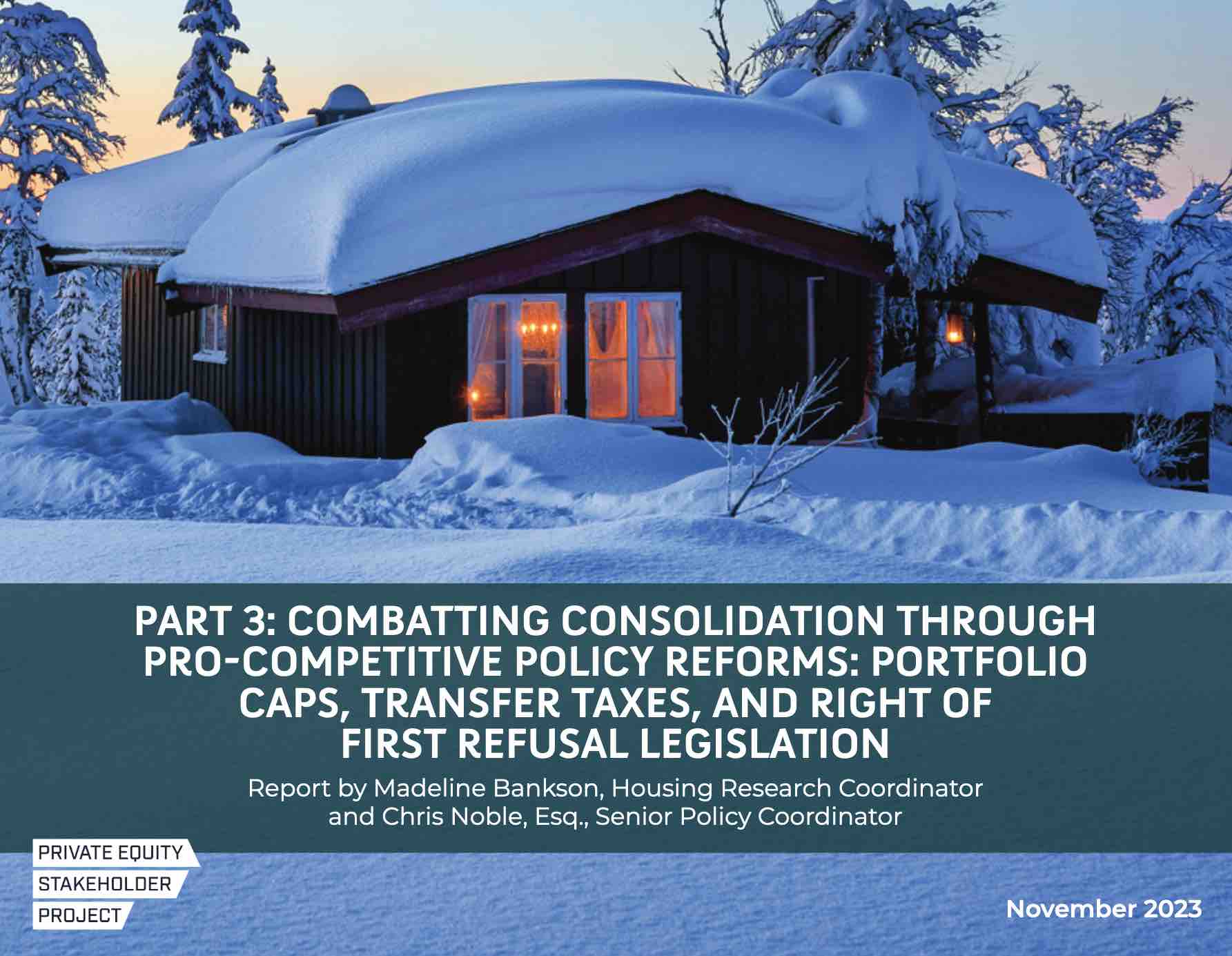
Combatting Consolidation Through Pro-Competitive Policy Reforms: Portfolio Caps, Transfer Taxes, and Right of First Refusal Legislation
December 12, 2023
Tenant advocates and government officials are expressing mounting concerns over the acceleration of corporate investment in housing. Housing financialization first gained momentum following the 2007-2008 mortgage crisis when Wall Street firms acquired foreclosed homes en masse. In recent years, the COVID-19 pandemic has further exacerbated the problem of speculative housing investment as the residential sector became an attractive option for growing capital in the face of overall economic uncertainty. Consequently, housing affordability and the rights of renters have become more pressing than ever, with concerned voices emerging from diverse political backgrounds.
Private equity firms and large corporate landlords are quickly acquiring housing, increasingly consolidating America’s housing stock into the hands of an ever smaller number of powerful corporations. This is true across housing types, with investors expanding ever further into single family housing, multifamily (apartment) housing, student housing, manufactured housing (mobile homes), and subsidized affordable housing.
PESP’s new report, “Combatting Consolidation Through Pro-Competitive Policy Reforms: Portfolio Caps, Transfer Taxes, and Right of First Refusal Legislation,” looks at policy efforts designed to combat the competitive advantage corporate landlords armed with huge pools of money, favorable regulatory environments, and robust technology hold versus individuals.
The report is the latest installment in PESP’s Tools for Tackling Corporate Landlordspolicy report series.
